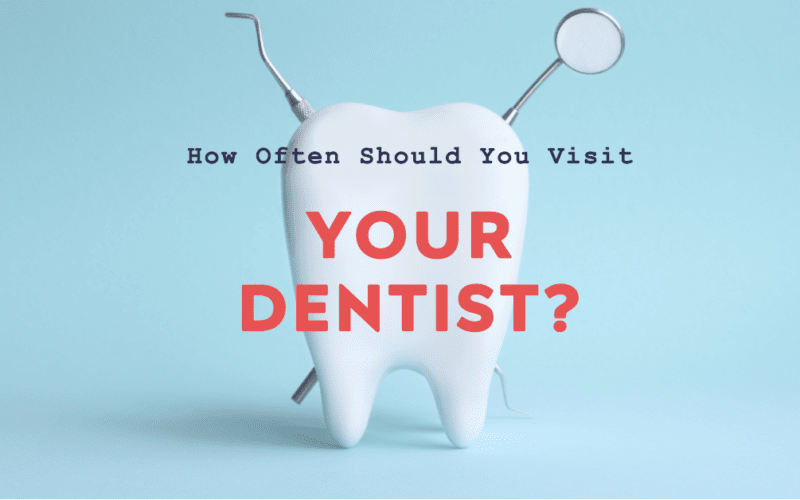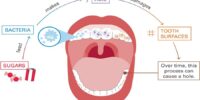How Often Should You Visit Your Dentist?

Going to the dentist twice a year is something that’s recommended for most people, but do you really need to go every 6 months?
In this article, we’ll explore the benefits of regular check ups, how often they should be scheduled, and what happens if you ignore a cavity.
We’ll also answer questions such as how long before a cavity gets bad, and can brushing slow down the development of a cavity.
Don’t ignore your dental health – read on and find out why regular check ups are important!
Twice-a-year recommendation
It’s a good idea to get a check-up from the dentist twice a year – it’s a great way to keep your teeth in tip-top condition! Visiting the dentist regularly helps to detect any early signs of dental issues before they become more serious. Regular check-ups are also important for maintaining proper oral hygiene and preventing gum disease.
During the appointment, the dentist or hygienist will clean and floss your teeth, as well as take a look for any signs of decay or infection. If any problems are found, the dentist can provide treatments and advice to help keep your teeth healthy.
Visiting the dentist twice a year can help catch any problems before they become more serious, and can help maintain good oral health.
Do you really need to see a dentist every 6 months?
Going to the dentist every 6 months may not be necessary for everyone, as studies have found that most people only need to go twice a year. However, this does not mean that you shouldn’t visit the dentist at all.
Regular dental check-ups are important for maintaining good oral health and preventing dental problems. Your dentist can help you determine how often you should visit based on your individual needs. For example, if you have a history of cavities or gum disease, your dentist may recommend more frequent visits.
Additionally, if you have a high risk of developing cavities or gum disease, your dentist may suggest that you come in more often. Ultimately, it’s important to talk to your dentist about how often you should visit in order to maintain good oral health.
Who should visit a dentist more often?
If you have a history of dental issues or a higher risk of developing them, it’s important to consult with a dentist about how frequently you need to be seen. People who fall into this category include those who are pregnant, have diabetes, have a weakened immune system, or are smokers.
In addition, those with poor oral hygiene habits, such as not brushing and flossing regularly, may need more frequent visits as well. It’s important to keep up with regular check-ups, even if your dental health is good. This way, the dentist can catch any potential issues before they become more serious.
Children should be taken to the dentist for their first check-up by the age of three, and after that, they should visit the dentist every six months. Adults should visit the dentist at least once per year, and every six months if they are at higher risk for developing dental issues.
Regular check up importance
Regular check-ups are essential for maintaining good dental health because they can help detect potential issues before they become more serious. For instance, one of my patients had their first check-up at the age of three, and it revealed a cavity that needed to be filled.
There are four main reasons why regular check-ups are important:
- They can help detect cavities and other dental problems early in order to prevent pain and infection.
- A dentist can look for signs of oral cancer and other diseases.
- Regular check-ups can help identify any potential issues with tooth alignment or function.
- They can help keep your teeth looking their best and maintain your overall dental health.
By having regular check-ups, you can ensure that any dental issues are identified and treated in a timely manner. This will help prevent any further damage to your teeth and gums and keep your mouth healthy.
Can tooth decay develop in 6 months?
Left unattended, tooth decay can spread quickly, leading to painful cavities in as little as six months. This means that regular checkups should be part of everyone’s routine dental care.
A visit to the dentist every six months will allow your dentist to monitor any changes in your mouth and to spot any potential dental problems before they become a serious issue. During a checkup, the dentist will first take a look at your teeth and gums, and then use x-rays to check for any decay that may be hidden between the teeth.
If any signs of decay are found, they can be treated before they become a larger problem. Your dentist will also provide advice on how to take care of your teeth and gums between checkups, which can help prevent the build-up of plaque and bacteria that can cause cavities and other issues.
By visiting the dentist regularly, you can ensure that your teeth and gums stay healthy and clean.
How long before a cavity gets bad?
Once tooth decay starts, it can quickly worsen if not taken care of, leaving you with a painful cavity in no time at all. The length of time it takes for a cavity to get bad varies depending on the severity of the decay and how quickly it’s treated. Generally, cavities can worsen in as little as six months if they’re not addressed properly.
Regular checkups with your dentist are important for catching tooth decay early and preventing it from getting worse. Your dentist is best equipped to assess the severity of a cavity and create a treatment plan to restore your tooth’s health. During these appointments, your dentist will clean your teeth and look for any signs of cavities.
In the event that a cavity is found, your dentist will recommend a treatment plan to prevent it from worsening. Regular visits to the dentist are the best way to ensure you maintain a healthy smile. If you’re experiencing any signs of tooth decay, it’s important to make an appointment with your dentist as soon as possible to prevent the cavity from getting worse.
Can brushing slow down a cavity?
Yes, brushing your teeth does play a role in slowing down the formation of cavities. While regular visits to your dentist are important, good oral hygiene habits such as brushing and flossing can help you stay on top of your oral health and reduce your risk of cavities.
Here are five ways that brushing can help slow down a cavity:
- Brushing removes plaque, which is a sticky film of bacteria that can form on your teeth.
- Brushing helps remove food particles and sugars that can get stuck between your teeth.
- Brushing helps remove bacteria that can cause cavities.
- Brushing helps protect your teeth from acid erosion caused by certain foods and drinks.
- Brushing can help reduce the amount of bacteria in your mouth, which can reduce your risk of cavities.
Overall, brushing your teeth twice a day and flossing regularly can help slow down the formation of cavities. While it can’t completely prevent cavities, it can help reduce your risk. Regular visits to your dentist will also help ensure that any cavities that do form are detected and treated before they become more serious.
What happens if you ignore cavity?
If you ignore a cavity, it can lead to significant damage to your teeth and cause pain. Therefore, it’s important to take steps to prevent cavities and to address them promptly if they do form, rather than leaving them untreated.
Ignoring cavities can have a long-term impact on your oral health, leading to greater damage to the tooth and even more pain. If the cavity is left untreated, the bacteria can spread to the root of the tooth and cause infection.
This can lead to an abscess, which is a pocket of pus that can cause even more damage to the tooth and surrounding tissue. In some cases, you may need to undergo a root canal procedure to repair the damage.
In extreme cases, the tooth may need to be extracted if it is too damaged to be saved.
Conclusion
You should visit your dentist twice a year for regular check-ups. It’s better to be safe than sorry when it comes to your oral health.
Regular visits can help catch any issues before they become serious. Brushing and flossing can help slow down the development of cavities, but they can’t stop them completely. Ignoring a cavity can lead to more serious issues, so it’s best to get it taken care of as soon as possible.
As the old adage goes, an ounce of prevention is worth a pound of cure. So, make sure to visit your dentist twice a year to keep your teeth and gums healthy.









